
Many years ago, in the days of one-way communication, brands dictated their terms to consumers, and consumers had no option but to accept them if they wanted to purchase the brand in question.
With the rise of smartphones, social media and the internet of absolutely everything, the communication channels began to sway, shifting the locus of communication control. Two-way communication between brand and consumer was born, with brands starting to listen to their consumers and hear what they had to say. Taking this a step further, brands are now starting to take on human characteristics, from look-and-feel to tone and personalisation to establish deeper connections with their consumers.
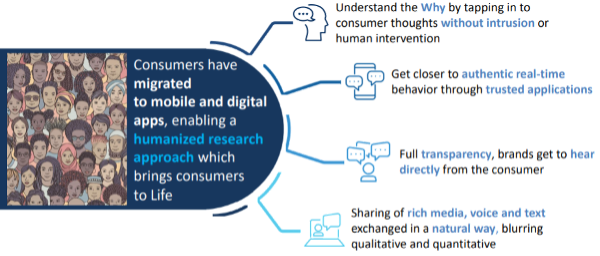
Research evolves to capture deep human complexities
Consumer communication preferences have evolved at a rapid rate due to digital communication. Consumers are accessible via new and different means: Mobile and digital research methodologies enable the industry to understand consumers’ thoughts and behaviour without intrusion, gathering this data in real-time and enabling a rich, deep picture of the consumer to be created naturally, by merging quantitative and qualitative spheres.
As consumer preferences change, brand capacity evolves. The research industry has to stay ahead of both of these shifts, in order to capture consumer behaviour and changes in real-time. This enables them to deliver a deeper level of human-centric insights and meta learnings to clients, with a depth that enables them to truly understand the complex mind of their consumers.
Bot-enables research conducted via chat apps
Since the inception of the internet, chat apps have made an enormous impact on Africa, often being primarily responsible for bringing internet access to the mass market.
Borderless Access has leveraged this extremely far-reaching app to run bot-enabled research as a way of collecting rich and insightful data in Africa. We collaborated with Unilever to run a study in South Africa, Kenya and Nigeria to explore hygiene challenges at a ground level. The purpose was to identify ways in which Unilever can address these challenges with relevant and useful product offerings by gaining cross-market learnings and insights on the following themes:
- Affordability and shopping habits
- Product quality
- Purpose of consumable goods
- Human truths and behaviour
- Communication and claims around product offerings
Unilever wants to make sustainable living commonplace
Unilever has been operating in Africa for 100 years. One of the company’s primary objectives is to serve its people, improving lives & doing good for societies. The company’s founder William Lever was a social entrepreneur who started making Sunlight soap at a time that Britain was beset with cholera and dysentery. He strived to make cleanliness commonplace – and now over 100 years later, the world has had to address and prioritize hygiene once again, as sanitization takes centre stage amidst a global pandemic.
Mass market open to chatbot methodology
As we have seen in previous research conducted with both Unilever and Coca-Cola Africa, bot-enabled research effectively reaches the mass market, producing rich insights that comprise both qualitative and quantitative feedback, in the form of voice notes, videos, images, and text.
The first notable finding of this latest piece of research was how different the hygiene challenges were from country to country. South Africa as we know, has relatively advanced access to hygiene items, whereas in Nigeria on the other hand, water without soap is commonplace as a cleaning methodology. Poignant verbatims were shared by Kenyans commenting on how water itself was a luxury that not everyone can afford.
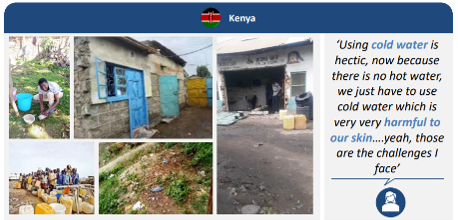
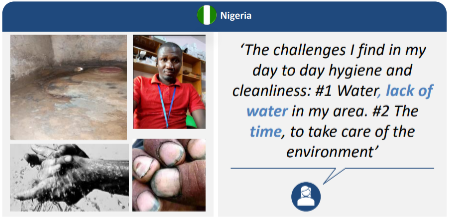
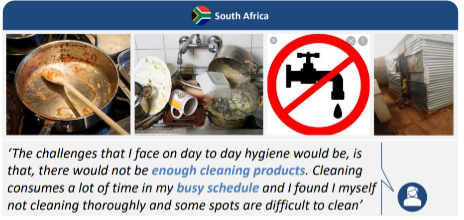
While the South African lifestyle scores higher up on Maslow’s hierarchy of needs, these citizens also face challenges when it comes to hygiene. Water shortages are increasingly prevalent in the country and the economic impact of Covid-19 has been devastating. In terms of hygiene, one of South Africa’s greatest challenges is the cleaning of tough dirt, particularly in kitchens.
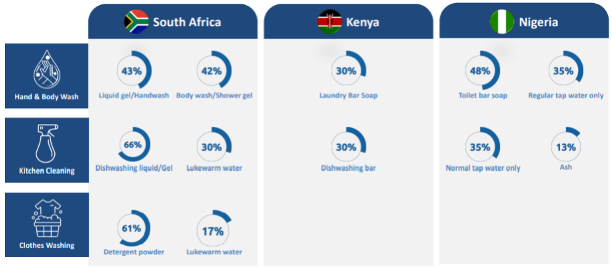
Developing quality products at affordable prices
While there are notable differences between the countries, there are also a lot of similarities, these being some of the challenges that people face with regards to accessing better hygiene. All three countries struggle with the high cost of products, low quality products and lack of government support in this regard.
What is needed therefore is the availability of quality products at affordable prices, in order to truly meet the needs of consumers in Africa. ‘The insights generated by Borderless Access made me strongly reconsider what true purpose/sustainability means for our mainstream citizens’, says Stacey Grant, CMI Director, Unilever Africa, South Africa.’
‘Experimenting with pack sizes and providing packaging-free variants are two options that businesses can consider to make hygiene affordable for, and accessible to African consumers. At Unilever, our highly experienced brand & product research & development teams are constantly innovating to find new ways to better serve our consumers & solve their pain points,’ continues Unilever’s Stacey Grant. ‘There is no shortage of opportunities – only resources to go after them – and research like this plays a key role in guiding choices behind where to invest the resources we have, ensuring we prioritise spaces that our consumers really care about, and supporting them where they need us most. And when the research is fast, which digital methods like this enables, it means we can meet needs sooner.’
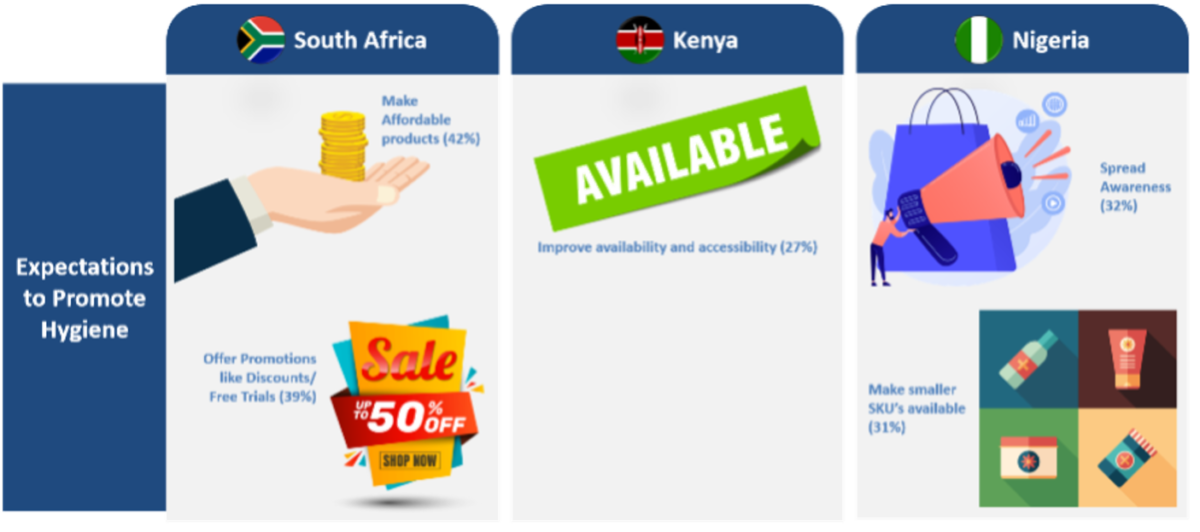
Borderless Access is proud of how its bot-enabled research can reach the mass market quickly and efficiently, eliciting a depth of information and meta learnings from key consumer brackets. For more information on how we can collaborate with you please reach out here.


